View all 5 pictures
About the city walk
Centuries ago, Dokkum was located directly by the sea, and thus a very important town for trading and defence. But over time, the direct connection with the sea silted up, and Dokkum lost its function as a coastal town. Nature and climate continue to influence this northernmost part of Friesland, but nowadays Dokkum is mainly known for being a surprisingly hip hidden gem. Shop in the many boutiques, have lunch on the waterfront... This 40-minute walk will take you past Dokkum’s natural highlights.
Easy navigation?
View the route in Google Maps
About the Ice Fountain
The Ice Fountain is a plaything of the ele…
About the city walk
Centuries ago, Dokkum was located directly by the sea, and thus a very important town for trading and defence. But over time, the direct connection with the sea silted up, and Dokkum lost its function as a coastal town. Nature and climate continue to influence this northernmost part of Friesland, but nowadays Dokkum is mainly known for being a surprisingly hip hidden gem. Shop in the many boutiques, have lunch on the waterfront... This 40-minute walk will take you past Dokkum’s natural highlights.
Easy navigation?
View the route in Google Maps
About the Ice Fountain
The Ice Fountain is a plaything of the elements and looks different every day. Ice draws patterns on the copper skin of the sculpture. The extent to which the fountain forms, or does not form, layers of ice depends on the sun, humidity, temperature, wind and precipitation. The energy for the Ice Fountain is generated by solar panels. The surrounding trees turn red in autumn. They refer to Boniface and his followers who were murdered in Dokkum. For an optimal shadow effect, the sculpture makes use of the natural, systematic arrangement of leaves around a centre point. The result of over 100 million years of evolution in the plant world.
The Ice Fountain is a toy for the elements and no two days are the same. The ice draws patterns on the copper surface layer of the sculpture.

Verken de tijdloze charme van Hotel Abdij, gevestigd in een prachtig historisch pand in het hart van de bruisende binnenstad van Dokkum.

De Grote kerk, ook wel de St-Martinuskerk gevestigd op de terp van Dokkum, aan de zuidzijde van de Markt. De bedevaartsplek voor Bonifatius, die in 754 bij Dokkum werd vermoord.
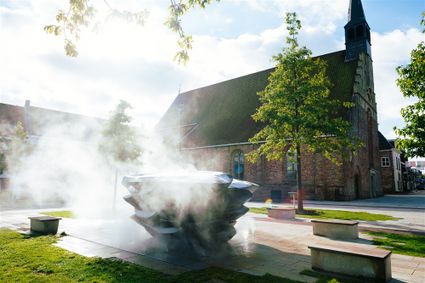
De beroemde bolwerken van Dokkum. Deze stadswallen vormden jaren geleden als verdedigingslinie voor de stad. Op zes punten bevinden zich bastions. Vanaf deze bolwerken heb je een prachtig uitzicht over de stad én de bijbehorende natuur.
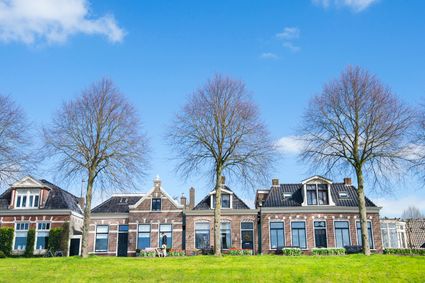
Zeldenrust is een windmolen uit 1862 in Dokkum. De molen staat op één van de Dokkumer bolwerken.
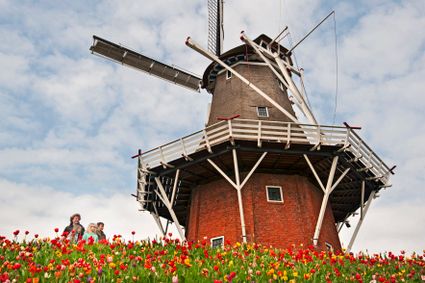
De Hoop is een windmolen uit 1849 in Dokkum. De molen staat op één van de Dokkumer bolwerken.
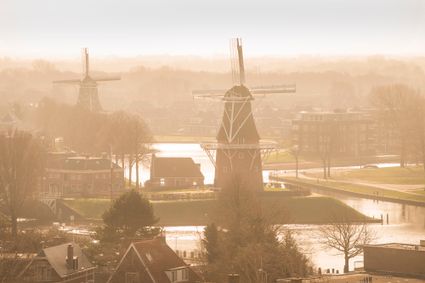
Eeuwen geleden had Dokkum een open verbinding met de zee. Dat maakte de stad een belangrijke plek voor de Friese Admiraliteit. Door de aanleg van de Stroobossertrekvaart in de 17e eeuw ging Dokkum echter failliet. Vandaar de bijnaam 'Arm Dokkum'.
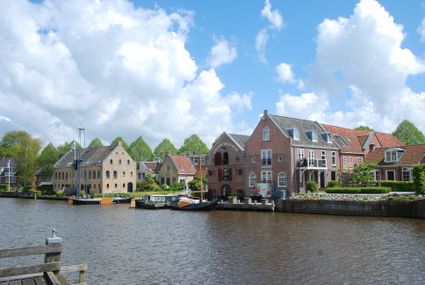
De Sint-Bonifatiuskerk is een rooms-katholieke kerk in de binnenstad van Dokkum. Het rijksmonument werd gebouwd in 1871.
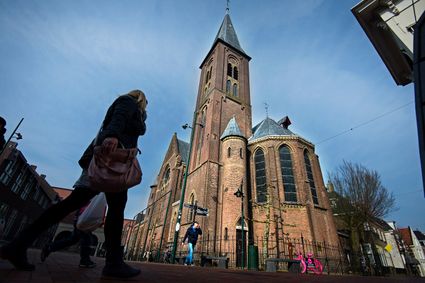
De trekschuit (of snik) van Dokkum is in 1980 gebouwd in opdracht van de Stichting Stamboek Ronde- en Platbodemjachten. Het is een reconstructie op ware grootte van een trekschuit die nog steeds in Friesland bleek te zijn.
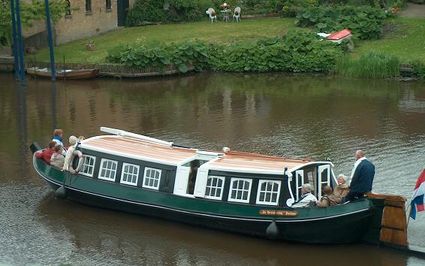
Midden in het historische centrum van Dokkum ligt het Admiraliteitshuis. Het museum Dokkum bevindt zich in dit pand dat bestaat uit een aantal historische panden, waaronder het zeventiende eeuwse gebouw van de Admiraliteit van Friesland en Groningen.
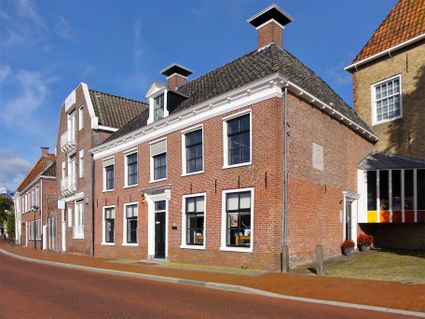
De geschiedenis van het Dokkumer bier begint al in de vroege middeleeuwen. Na de dood in 754 van Bonifatius brouwden de monniken van de net gestichte Bonifatiusabdij op de Markt het Dokkumer bier.


Diepswal 5
9101 LA Dokkum
Je zit er zo op: de doorlopers daar op de kade in Dokkum bij het beroemde keerpunt van de Elfstedentocht in Dokkum.
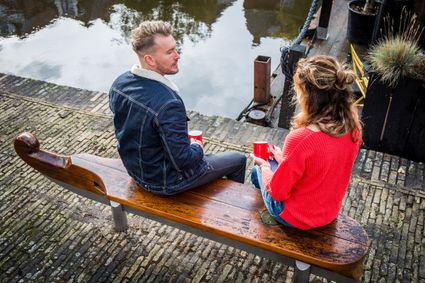
Als zichtbaar herdenkingsteken aan de plaats waar Bonifatius stierf, staat naast de Bonifatiusbron een 2,50 meter hoog Bonifatiusbeeld. Bij de bron als doel van pelgrimage is een kapel gebouwd van kloosterstenen.
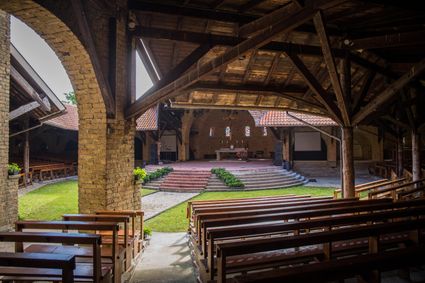
The Ice Fountain is a toy for the elements and no two days are the same. The ice draws patterns on the copper surface layer of the sculpture.

The Ice Fountain is a toy for the elements and no two days are the same. The ice draws patterns on the copper surface layer of the sculpture.

City of seamanship and coastal defence
The organically formed Ice Fountain is unique in the world. Because of a combination of mist and freezing, the ‘fountain’ is always covered with a small layer of ice. Beautiful to see and exciting to touch. This is the starting point of the route through Dokkum.
After your visit to the fountain, walk past Hotel de Abdij and turn right at Eric’s Café, towards the fortifications of Dokkum: the Dokkumer Bolwerken. Walk along the water, surrounded by trees and picturesque houses. In the distance you can already see Zeldenrust, one of the two flourmills that adorn the bulwarks. Once you’ve arrived at the mill, don’t take the turn right away, but walk around this beautiful building. Continue your route along the water, on top of the bulwarks, to the second mill. These days, flourmill De Hoop houses a pet shop. Walk around the mill by following the narrow footpath around it.
Continue the route. Just before the bridge Woudpoortbrug, you will see one of the cannons that was used to defend Dokkum against siege. Coastal towns often had to deal with sieges, which were an unfortunate part of the sea trade. You will encounter more impressive cannons during this route. This part of the bulwark takes you to the bridge Kettingbrug (chain bridge). A lovely pedestrian bridge, adorned with fragrant flowers. In the old days however, it smelled different here, as this is where the city gallows were erected. Pirates were hung here as a warning to the locals and visitors.
Continue northwards to explore the last part of the green bulwarks. Turn left at the Aalsumerpoort, towards the city. Follow the canal through the historic centre, past the gorgeous Waag (weigh house), which today houses a lunch cafe.
Continue straight ahead to reach Het Grootdiep. Don’t let yourself be tempted yet by the lovely café terraces on your left, but turn right first. Here you will find Museum Dokkum, which tells the history of Dokkum through archaeological finds, traditional Frisian clothing and Dokkum art. Across the water, you can see the centuries-old buildings of the Dokkum Admiralty, the organisation that used to protect the coast and fought pirates. The green barge is a historic towboat, that is also used for round trips.
Further along the water you will find the cosy terraces of the cafés that are housed in the old canal houses. In the summer this is a very lively place and during the Elfstedentocht, the Eleven Cities Ice Skating Tour, this is always the turning point of the skaters. On the other side of Het Grootdiep, you can often see ice cream lovers lining up in front of the ice-cream parlour. Turn right there and walk - with the water on your right - towards the Wortelhaven. All restaurants and cafés of Dokkum can be found here.
At the Wortelhaven, cross the tall white pedestrian bridge on your right. After you have crossed the bridge, take the first street on your left and then the first street on your right to arrive at the Ice Fountain. Your walk ends here!
The Ice Fountain is a toy for the elements and no two days are the same. The ice draws patterns on the copper surface layer of the sculpture.
